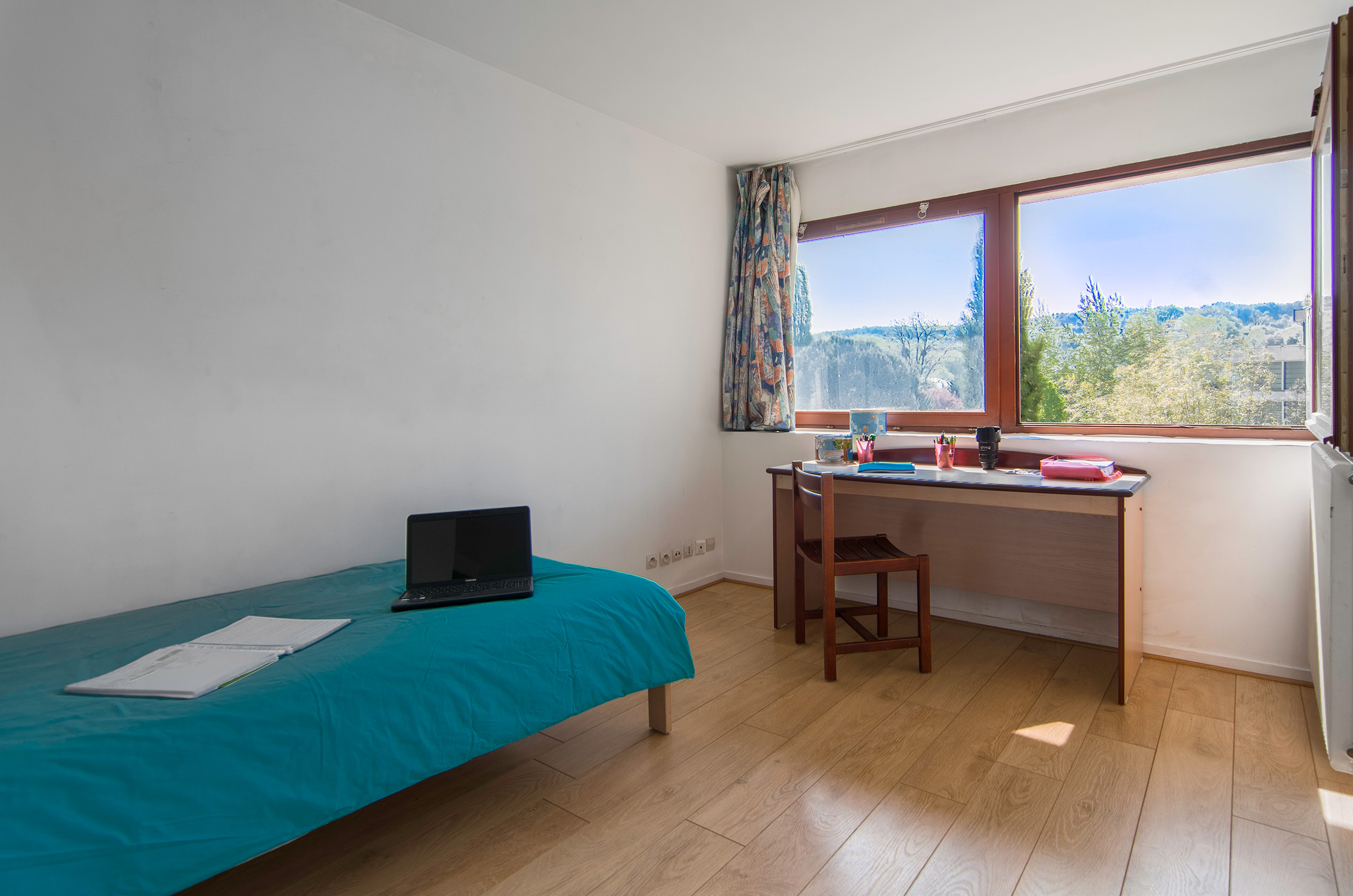Avoiding Scams
With the high demand for accommodation (especially student accommodation) scammers operating in the property market are rife. Aiming at a young and international target group, they trick housing applicants with misleading advertisements and underhand techniques.
You should be particularly careful of online sales sites, such as Leboncoin.fr or Facebook. It is, of course, possible to find adverts for renting studios or flats on these sites. However, the sites are not managed by landlords or property companies. Here are the most common types of internet scams.
False advertisements
False advertisements are easy to create and particularly hard to spot. Usually, the advertiser 'steals from’ a site and collects photos and a description of a property already posted previously. Scammers also get photos from the Internet, add a phone number and set a generally attractive price. The property might even be a 'phantom property’ which is created from scratch and does not really exist. Even if the property does exist, it may belong to somebody else and perhaps already be rented. Before drawing up a lease agreement or showing you the property, the scammer may ask you to pay a certain amount of money in cash, by cheque, by bank transfer or by other unconventional means. Once the money has been collected, the so-called owner will ask you for more money... or disappear, without anything further taking place.
Danger ! Beware of 'owners' asking you to send them money via prepaid purchase cards, phone cards or other means of payment other than bank transfers or cheques.
For private housing, ask to see the property before making a financial commitment. Information on the regulation of real estate advertisements
How ?
Find out the average price for the kind of property you are looking for.
The rent is agreed and specified on the lease agreement. You do not have to pay any more than the sum stated. If, at the time of the departure inventory, the condition of the flat is similar to its condition on arrival, the deposit cannot be retained.
Prices which are too high
These types of adverts are aimed at tricking people (especially those from abroad) who have no idea about local property prices. Compared to the rental rates on the real estate market, these landlords set prices well above the average. Potential tenants can fall into the trap of paying much more than they should and sometimes can lose significant sums.
Various charges
These scams are undetectable at first glance. Only once the file has been compiled and the accommodation occupied will the landlord perhaps try to cheat the tenant. The landlord may, for example, ask the tenant to pay additional insurance and deposits and, at the end of the tenancy, retain the deposit without good reason. The landlord may even claim unjustified expenses. Be aware that a landlord has no right to ask you to pay insurance directly to them. You should make such payments to the recognised organisations, not to your landlord.
Substandard and unsubsidised accommodation
Some landlords rent out unsubsidised and unregulated properties. The accommodation may have no running water or no heating, or have mould or faulty electricity and therefore be dangerous for the tenant. For example, advertisements exist for storage units, garages, cellars and attics which are also not subsidised and are not intended to accommodate tenants.
The landlord usually has no right to rent out this type of 'accommodation'. However, this does not prevent less scrupulous landlords from doing so. To get around the law, they will not ask you to sign a rental agreement and may, for example, demand cash for the rent. All these scams are unfortunately quite common. A large number of students are tricked every year and lose a lot of time and money.
Be careful
To avoid becoming a victim of this type of scam, avoid sales and advertising sites which are not exclusively dedicated to real estate adverts. Carry out your research on our site or on sites such as Studapart, Lokaviz, Adele or on the landlords' own websites.
Target subsidised accommodation. If you are looking for a rental on your own, look to see if the accommodation is eligible for housing benefit (Personalised Housing Assistance (APL)) This information can give you an idea of whether or not you are dealing with an abusive landlord. Also, be aware that a dwelling available for rent should have a minimum surface area of 9 m2 and a ceiling height of 2.20 m. The living space should be 20 m3
The search for accommodation can be carried out in three ways
-
1
SITES FOR RESERVING UNIVERSITY ACCOMMODATION and in particular those run by the Regional centre for academic and educational works (CROUS)
-
2
THE WEBSITES OF SOCIAL AND PRIVATE LANDLORDS whose offers may be listed on advertising sites,
-
3
ADVERTISING SITES OR THE WEBSITES OF ASSOCIATIONS which list the offers made by individuals
In all three cases, it is advisable to search for accommodation in advance.
The time needed for research
CROUS (regional centre for academic and educational works) university residences
-
FROM MID-MARCH • You are eligible for a grant based on social criteria: your Student social file (DSE) will be compiled from mid-March to 15 May for the start of the academic year in September. You can apply on the site https://www.messervices.etudiant.gouv.fr use the tab 'Scholarship application (DSE)’ and fill in your application for accommodation.
Please note : not all students are eligible for the Social scholarship (BCS). The attached criteria are by nature restrictive (income, family situation, residence and schooling conditions). To consult the criteria for the Student Social File, go to Etudiants.gouv, bourses sur critères sociaux
Once you have submitted your application and your file has been approved by CROUS, you have until the end of June to submit your accommodation requests directly on the national site
-
start of July additional phase • If you are not eligible for a grant based on social criteria, you can submit your accommodation requests directly on la plateforme nationale but only from the start of July. Please note that you can also make a request via : the GUPS as from June onwards. Your application will then be processed by your school on the basis of academic criteria in particular.
-
Social and private landlords
BY JUNE AT THE LATEST
For social landlords, an application must be completed by June at the latest for the start of the academic year in September. What are the advantages of doing it as far in advance as possible? You maximise your chances of getting the accommodation you would like. It should be noted that some social landlords reserve places in residences for students meeting specific criteria. So, if you see a residence with free places, they may not be available to everyone and only to certain students
-
Private individuals
AS EARLY AS POSSIBLE
The watchword for private individuals too is foresight - the earlier you apply, the better your chances of finding accommodation.
If you are looking for accommodation outside the start of academic terms (end of August, start of September & January), you can also apply. In fact, many landlords, and CROUS in particular, manage accommodation requests ‘as they come in’. Between the start of the two academic years, some students may leave their accommodation for personal reasons or to go on work experience. When this occurs, a few vacated dwellings become available again and you can make an application
The demand for accommodation is very high, particularly at the start of the university academic year. The longer you delay making your request, the fewer the options which will be available. We therefore advise that you begin your search for accommodation at least four months before your planned or intended arrival in order to benefit
If you have not been able to apply or file your application in time, you can try to look for accommodation in a shorter time frame, but this inevitably reduces your chances of finding somewhere suitable.
The selection criteria and allocation
It is important to note that university residences (especially those run by CROUS) have academic, social or geographical criteria for selecting students who can or cannot access their accommodation. This ties in with what we have explained earlier - i.e. some places are reserved for students who meet the selection criteria. Quotas divide the number of places in a residence into two categories. The first is for all student profiles. The second concerns specific profiles. If you do not match the profile sought by the advertiser, you will not be able to benefit from the reserved places.
Need help?
Despite reading this guide, do you still feel lost? Do some points remain unclear? Please get in contact with the Department of Student Life & Equal Opportunities of Université Paris-Saclay. They will be able to help you with your search. If you need help or information about accommodation, please use the CONTACT US form
You can also go to the Department of Student Life & Equal Opportunities (DVEEC) offices in building 490 on the Orsay campus 91400 ,each weekday (except during hollidays) 9h-12h / 13h-17h


